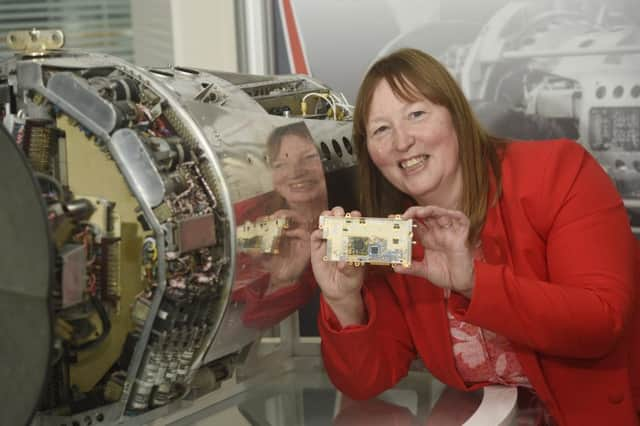Girl-only science classes vital for gender balance, says leading Scots engineer


Dr Carol Marsh, deputy head of electronic engineering at the Edinburgh site of Leonardo, one of the UK’s leading aerospace companies, and a former president of the Women’s Engineering Society, said women were missing out on professional STEM (science, technology, engineering and maths) jobs because of being deterred at an early age.
Just 22 per cent of the UK’s STEM workforce is female according to the Office for National Statistics Labour Force Survey.
Advertisement
Hide AdAdvertisement
Hide Ad“I’m still shocked when I go out to lots of schools and hear girls are being told physics is too difficult for them,” said Marsh, 56, who attended Tynecastle High in Edinburgh before graduating from Napier Technical College, now Edinburgh Napier University.
“To get women into the industry we need to start off with female-only clubs. In mixed groups the girls hang back while the boys just jump in and use the equipment. A vast pool of talent and ability is getting overlooked. But it’s not just about getting to the kids, we need to get the message out to teachers and parents too,” said Marsh, who runs a number of women-only groups.
Marsh added that whilst there were a number of excellent initiatives, a coherent, coordinated strategy was still lacking.
Marsh, who has researched the little-known stories of women who have made landmark contributions to computer history, also believes all primary schools should have an in-house science teacher.
Larry Flanagan. general secretary of the Educational Institute of Scotland, said: “The EIS is clear educational experiences and environments must be fully inclusive.
“However, the research evidence on the efficacy of gendered learning groups isn’t conclusive.
“In response to the perceived challenges of STEM for girls, the increased adoption of the collaborative approaches enabled by smaller classes, would have the potential to make STEM learning more attractive and engaging.”
“The EIS would support the deployment of science specialists in primary schools to support class teachers in delivering this area of the curriculum.”
Advertisement
Hide AdAdvertisement
Hide AdA Scottish Government spokeswoman said: “Improving equity and equality is one of our key priorities. We welcome any initiative which would encourage pupils’ – including girls’ – participation in STEM activities.
“However, we believe segregating children will not necessarily achieve change – and could potentially reinforce the notion that girls and boys are different.
“That is why, to tackle gender imbalances in STEM, we are working with schools through the improving gender balance and equalities team in Education Scotland, who are taking forward a programme of work under the STEM education and training strategy.
“We have also taken action to raise awareness of gender bias with parents, families and teachers at all stages of the education process.”